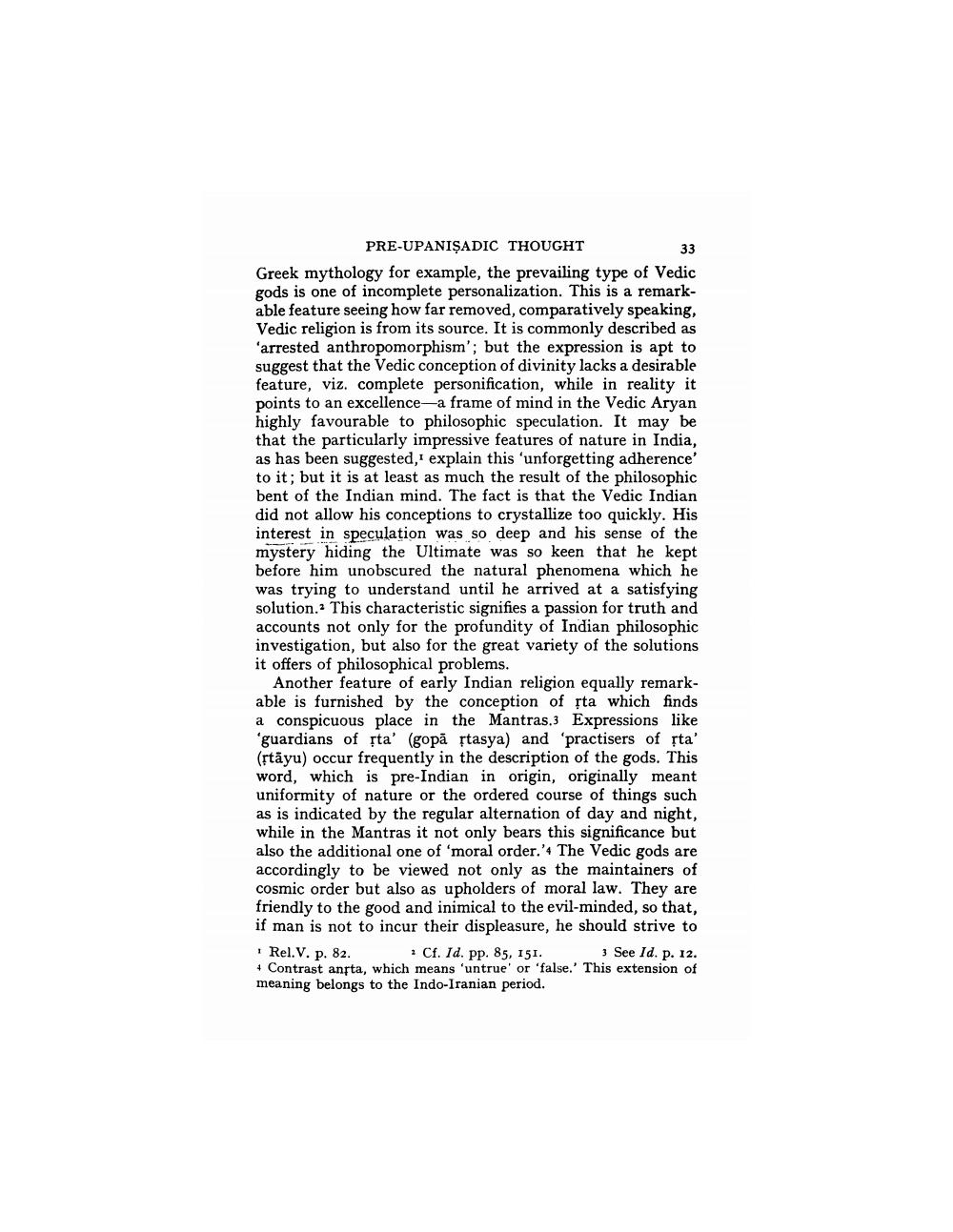________________
PRE-UPANIŞADIC THOUGHT
33 Greek mythology for example, the prevailing type of Vedic gods is one of incomplete personalization. This is a remarkable feature seeing how far removed, comparatively speaking, Vedic religion is from its source. It is commonly described as 'arrested anthropomorphism'; but the expression is apt to suggest that the Vedic conception of divinity lacks a desirable feature, viz. complete personification, while in reality it points to an excellence-a frame of mind in the Vedic Aryan highly favourable to philosophic speculation. It may be that the particularly impressive features of nature in India, as has been suggested, explain this 'unforgetting adherence' to it; but it is at least as much the result of the philosophic bent of the Indian mind. The fact is that the Vedic Indian did not allow his conceptions to crystallize too quickly. His interest in speculation was so deep and his sense of the mystery hiding the Ultimate was so keen that he kept before him unobscured the natural phenomena which he was trying to understand until he arrived at a satisfying solution. This characteristic signifies a passion for truth and accounts not only for the profundity of Indian philosophic investigation, but also for the great variety of the solutions it offers of philosophical problems.
Another feature of early Indian religion equally remarkable is furnished by the conception of sta which finds a conspicuous place in the Mantras.3 Expressions like 'guardians of sta' (gopā stasya) and practisers of sta' (rtāyu) occur frequently in the description of the gods. This word, which is pre-Indian in origin, originally meant uniformity of nature or the ordered course of things such as is indicated by the regular alternation of day and night, while in the Mantras it not only bears this significance but also the additional one of moral order.'4 The Vedic gods are accordingly to be viewed not only as the maintainers of cosmic order but also as upholders of moral law. They are friendly to the good and inimical to the evil-minded, so that, if man is not to incur their displeasure, he should strive to Rel.V. p. 82.
Cf. Id. pp. 85, 151. 3 See Id. p. 12. + Contrast anfta, which means 'untrue' or 'false.' This extension of meaning belongs to the Indo-Iranian period.




